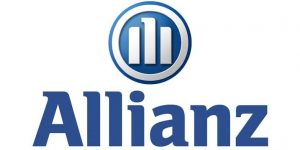
Allianz Global Corporate & Specialty (AGCS), the corporate insurance carrier of Allianz SE, hosts Allianz Group’s ESG Business Services team and has identified five key trends that will impact businesses’ ESG footprint in 2020 and beyond: climate change, water management, biodiversity degradation, exploitation in the supply chain and increasing scrutiny on corporate governance.
1: Address climate change in business strategy
Combatting climate change is the key challenge of the coming decade. It ranks 7th in the Allianz Risk Barometer 2020 – its highest-ever position – and is already affecting businesses in many ways, such as an increase in physical losses from more severe weather events or potential market and regulatory impacts such as carbon-emissions offsetting. There are also litigation risks as climate change cases targeting ‘carbon majors’ have already been brought in 30 countries around the world, with most cases filed in the US.
2: Ensure access to fresh water for communities
By 2050, the world’s population is expected to reach 9.7 billion[1] – while global water demand is expected to increase by 20% to 30%, mainly due to demand in the industrial and domestic sectors. Currently over two billion people[2] are living in areas of high water stress and almost half of the global population – about four billion people – experience severe water scarcity during at least one month of the year. “Water is a big issue for citizens and companies, alike,” says Bonnet. “Not just concerns about its abundance, but also its purity, its scarcity in a warming climate and its over-use and poor management.”
3: Protect biodiversity and finite resources
Oceans full of plastic waste, species extinction and severe land degradation due to storm, drought or increasing industrialization, as demonstrated in the felling of the Amazon rainforest, are just some of the most obvious examples of the deterioration of the planet. Sustainable consumption practices can slow future biodiversity loss.
4: Prevent human right violations in supply chains
Human exploitation can take on many forms in the business environment – forced labor, child labor or insufficient labor standards – and it can be difficult to detect in today’s global supply chains. It is estimated that around 40 million people are trapped in modern slavery globally[3]. Industries such as textiles, food and agriculture, electronics, sports, construction, or hospitality have been connected to modern slavery, although all sectors are vulnerable.
5: Governance issues continue to demand business diligence
Businesses and their directors are under increasing pressure to maintain sound corporate governance, as more investors, in evaluating a company, hold it up to ESG standards. Acts of corporate misconduct such as bribery or corruption, inadequate handling of data privacy, financial misconduct and money-laundering have all made headlines in recent years.